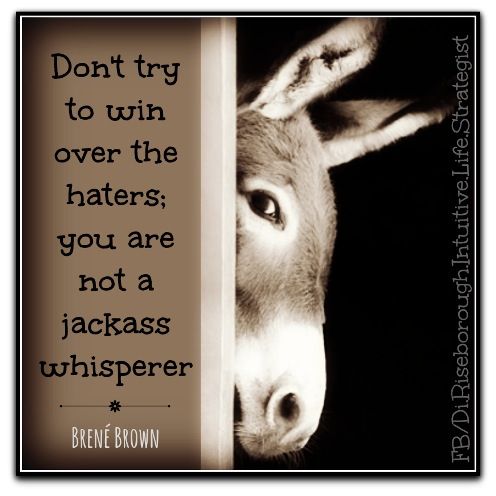
No one likes being criticized, but learning how to accept criticism is an important skill. Having a toolbox of techniques and coping mechanisms can help us return to balance when we feel triggered and makes it easier to figure out when feedback is useful for us. Learn four steps to handling criticism well. (Estimated reading time: 5-6 minutes)
“Accept both compliments and criticism. It takes both sun and rain for a flower to grow.”
— Unknown
I admit that I don’t take criticism well. It’s not something that comes naturally, and I have to be conscious of the signs that I’ve been triggered: a racing mind and a faster heartbeat.
Over the past year, while pursuing my second master’s degree, I encountered criticism from both my peers and professors, thus finding myself triggered in multiple situations. I was not used to this deluge of feedback, having worked independently for the past decade.
Being back in school felt like I was placed in a petri dish being tested on multiple levels, including my ability to handle criticism. I had to learn to become mindful of my reactions and question them from a place of loving curiosity, rather than reacting instinctively.
I created a toolbox of coping mechanisms to help me ease from a triggered state. The tools in my arsenal included breathing exercises and a repeated mantra: “It’s not personal.” I also educated myself on the difference between constructive and destructive criticism.

Although both forms of criticism challenge your abilities, ideas, and character, they differ in the ways they make you feel and the intent of the person delivering the criticism.
Destructive criticism leaves you feeling hurt and harms your confidence and self-concept. It’s often the result of someone’s ignorance and thoughtlessness, but it can also be deliberately hurtful and malicious.
In contrast, constructive criticism is delivered as feedback designed to point out your errors and areas of improvement. This type of criticism is given by a person with the intention to help you improve and make progress, rather than as a means to put you down and make you feel bad.
I know I’m not alone in my struggle to accept criticism. No one enjoys being criticized because no one likes to feel like they’re wrong. It’s why we are drawn to like-minded people. One of the biggest reasons criticism hits us hard is because we equate it with rejection.
In the moment it feels like someone is telling us that we’re not good enough or that we have failed in some way. In the real world, we’ll receive both destructive and constructive criticism – knowing how to distinguish between the two is an essential skill to learn if we are to use criticism to our advantage.
Nowadays, we are hit by wave after wave of criticism both on and offline. A boss or co-worker may try to bring your attention to a mistake you made on an assignment and how it should be modified for better performance. If you’re a social media personality, you might be at the mercy of the ‘likes’ and comments that are made on your posts.

The unfortunate truth is that the world isn’t designed with our fragile egos in mind. From the moment we’re born, we’re evaluated against specific standards, whether by parents, school authorities, society, or the places we work.
Accepting the truth that we are measured against a bar of success is the key to liberating ourselves. The sooner we get over it, the easier it will be for us to see the value in constructive criticism.
Our personal and professional success depends on our ability to take criticism in our stride. This quote from Theodore Roosevelt’s 1910 speech “The Man in the Arena” is encouraging because it highlights a fundamental truth: It takes a courageous person to face criticism:
“It is not the critic who counts; not the man who points out how the strong man stumbles, or where the doer of deeds could have done them better. The credit belongs to the man who is actually in the arena, whose face is marred by dust and sweat and blood; who strives valiantly; who errs, who comes short again and again, because there is no effort without error and shortcoming…”
Here are four keys to handling criticism well:
1. Question the credibility of the critic: The first thing to do when someone offers you a critique is to assess their credibility. Ask yourself if they have the qualifications and experience to give a valid and well-thought-out opinion. You would put more weight on feedback given to you by a professor who has studied a topic for years than someone who read just one book about it, for instance. Another reason we should do this is that we live in the age of information with a profusion of data and sources. There are many people out there who will parrot what they read and hear, posing as an expert, even if they have no formal background.
2. Identify the intention of the critic: When evaluating criticism is the intention that’s motivating the person giving it to you. Ask yourself whether or not you think it’s coming from a good place. Are there any possible ulterior motives that could cause bias and inaccuracy in their assessment? Do you trust them enough to tell you the truth respectfully and compassionately, even if it stings a little? Asking for, and receiving feedback is an act of vulnerability. Understanding the motivation of the source is critical. The intention of a rival at work could be seen as more suspicious than someone who has no stake in your position.
3. Keep your ego in check when responding: Criticism, no matter how well-intentioned, can often offend us. It hurts more acutely if we have unresolved insecurities we need to work on. It’s important to remember that even masters of their craft have had their work torn apart by others. The difference is that they gradually learned to take it in their stride. Developing a thicker skin by managing our emotional triggers and putting the criticism into perspective will soften the blows and allow us to recognize feedback that could actually lead to our progress and growth. Writer Elbert Hubbard said, “The final proof of greatness lies in being able to endure criticism without resentment.”
4. Look for the kernel of truth: This is often the hardest part because it requires us to set our pride aside and be brutally honest with ourselves. The good news is that when we’re in a less triggered state and our ego isn’t getting in the way, it will be easier to seek kernels of truth in criticism. If you’ve been overeating and not consuming nutritious food lately, and a good friend says that she is concerned about your health because she’s noticed the change in your appearance and energy levels, you would have to be strong enough to believe her and take her concern to heart, so that we can shift toward healthier eating habits.
Constructive criticism is like the hammer and chisel that a sculptor uses. Each critique you receive allows you to make your work of art more defined and focused. It makes your vision clearer and more vivid, giving room for it to reach its magnificence. As Michelangelo once said, “I saw the angel in the marble, and carved until I set him free.”
All my best on your journey,
Seline

Question for you: What’s the biggest challenge you face when handling criticism? Is there anything you’d like to change about how you respond?
Did you like this post? Sign up below, and I’ll send you more awesome posts like this every week.

For the most part, I handle constructive criticism well but just flat criticism I’m very hostile against. Tell me something along the lines of “I think if you did XYZ it might help you a bit with problem A or issue B you were telling me about.” Don’t come at me with “You just need to do XYZ ” or “Well problem A is because you aren’t doing XYZ as you should.” You will get totally different reactions from me depending on how you choose t approach me with criticism. Thanks for this!